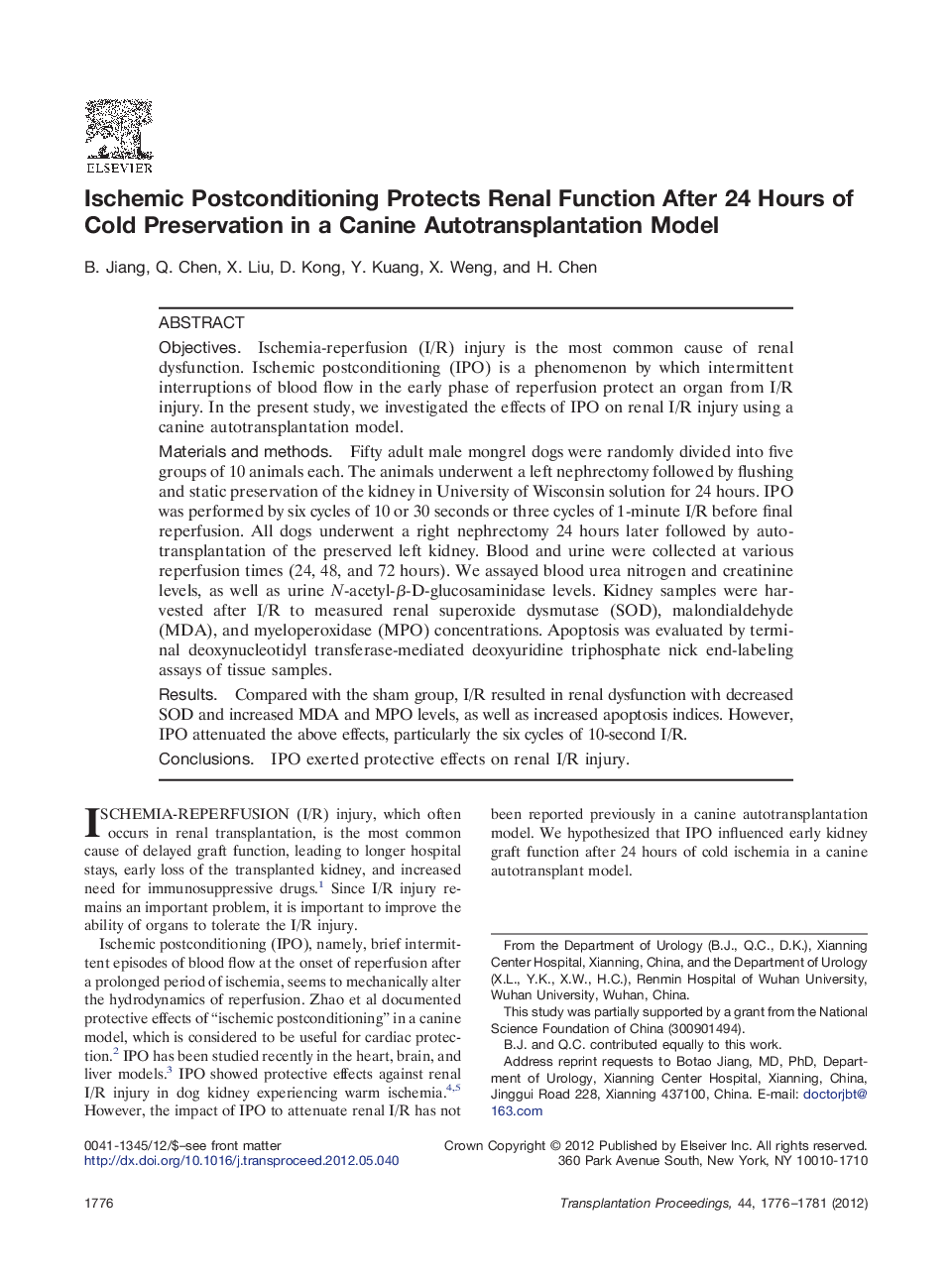| Article ID | Journal | Published Year | Pages | File Type |
|---|---|---|---|---|
| 4259964 | Transplantation Proceedings | 2012 | 6 Pages |
ObjectivesIschemia-reperfusion (I/R) injury is the most common cause of renal dysfunction. Ischemic postconditioning (IPO) is a phenomenon by which intermittent interruptions of blood flow in the early phase of reperfusion protect an organ from I/R injury. In the present study, we investigated the effects of IPO on renal I/R injury using a canine autotransplantation model.Materials and methodsFifty adult male mongrel dogs were randomly divided into five groups of 10 animals each. The animals underwent a left nephrectomy followed by flushing and static preservation of the kidney in University of Wisconsin solution for 24 hours. IPO was performed by six cycles of 10 or 30 seconds or three cycles of 1-minute I/R before final reperfusion. All dogs underwent a right nephrectomy 24 hours later followed by autotransplantation of the preserved left kidney. Blood and urine were collected at various reperfusion times (24, 48, and 72 hours). We assayed blood urea nitrogen and creatinine levels, as well as urine N-acetyl-β-D-glucosaminidase levels. Kidney samples were harvested after I/R to measured renal superoxide dysmutase (SOD), malondialdehyde (MDA), and myeloperoxidase (MPO) concentrations. Apoptosis was evaluated by terminal deoxynucleotidyl transferase-mediated deoxyuridine triphosphate nick end-labeling assays of tissue samples.ResultsCompared with the sham group, I/R resulted in renal dysfunction with decreased SOD and increased MDA and MPO levels, as well as increased apoptosis indices. However, IPO attenuated the above effects, particularly the six cycles of 10-second I/R.ConclusionsIPO exerted protective effects on renal I/R injury.
